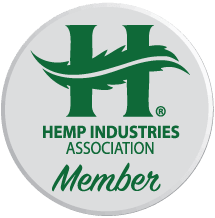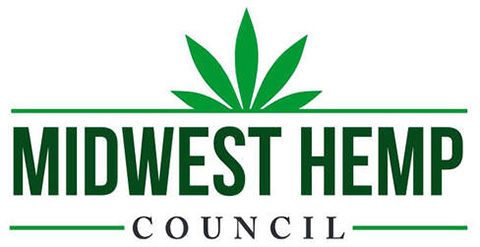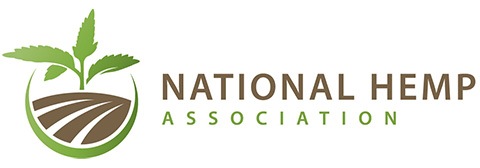


Just how is delta-8 THC made? The short answer to that question appears to be: It depends on the manufacturer. For this article, Hemp Benchmarks spoke to hemp-cannabinoid market participants about how delta-8 THC is manufactured, as well as considerations regarding product potency, variability, and safety.
There is rising demand for delta-8 THC, an intoxicating cannabinoid manufactured from hemp-derived CBD. Delta-8 THC is sold nationwide, but occupies a legal gray area. Proponents claim that, as a compound made from hemp derivatives, delta-8 THC is legal due to the legalization of hemp and hemp derivatives by the 2018 Farm Bill. Other stakeholders have asserted that Congress did not intend to allow intoxicating products when it legalized hemp.
Regardless of the legal uncertainty, delta-8 THC appears to be especially popular in states where high-THC cannabis, which contains delta-9 THC, remains illegal. It also continues to boost the revenues of hemp growers and processors, many of whom are still trying to find a market for the mountains of hemp grown and harvested in the “green rush” years following the plant’s legalization in 2018.
In terms of its molecular structure, delta-8 THC is very similar to delta-9 THC, which is the compound that is primarily responsible for the “high” caused by consuming cannabis. Both delta-8 and delta-9 THC have a double bind in their molecular chain; in delta-8 THC that bond is on the 8th carbon chain, while in delta-9 THC the bond is on the 9th position in the carbon chain.
Delta-8 THC can be found naturally in cannabis plants. However, no known cannabis variety produces significant amounts of delta-8 THC, making extraction from plant material infeasible. Since delta-8 THC cannot be economically extracted from plant material, businesses have begun to manufacture it from hemp-derived CBD, particularly CBD isolate. In order to do so, producers must heat the CBD in an organic solvent, using one of a variety of acids as a catalyst to create the necessary chemical reaction.
“You dissolve CBD isolate into a solvent, you add an acid, and you hold the reaction – and it creates an exothermic reaction, one that gives off heat,” said Russell Lombard, the CEO of Denver-based Canna Redux, a business-to-business wholesaler of cannabinoids, including CBD and delta-8 THC. “You hold that reaction at a specific temperature for a specific amount of time. At the end of that, it uses the acid / solvent combo to chemically convert the CBD isolate into delta-8 THC.”
Lain Bradford is owner of South Carolina-based SE Hemp Services, which manufactures white label, hemp-derived products for companies across the U.S. He is preparing to launch his own laboratory in several weeks’ time, for both cannabinoid production as well as research and development. Bradford said the process of making delta-8 THC can be tricky and painstaking.
“You have to watch your reactions very, very closely or else you can have a runaway reaction or you can have a chemical spike really high,” he told Hemp Benchmarks. “There’s a lot of variables that you have to keep a close eye on, because, if not, you end up with a bad batch [one that contains residual chemicals and / or is over the allowed delta-9 THC content]. That’s one of the concerns that we had when we were buying delta-8, was how many of these brokers are being honest or are they just going to try and pass it off.”
Russell Lombard told Hemp Benchmarks that the biggest controversies regarding delta-8 THC are often due the varying ways producers manufacture the cannabinoid, as well as the still-undetermined byproducts that can result from those diverse manufacturing processes. “The reality is, even if you start with a 99.9% CBD isolate, you don’t end up with a 99.9% delta-8 THC,” he noted. “Some people will claim that you do; some labs will test, telling you that you do. But if you look at the chromatogram, as a scientist, you can tell that you have a lot of other stuff going on in that reaction.”
Concerns regarding contaminants in delta-8 THC products recently drew the attention of the federal government. In September, the U.S. Food and Drug Administration (FDA) issued a warning about delta-8 THC’s potential health risks. It notes that no delta-8 THC products had been evaluated or approved by the FDA for safe use. “Some concerns,” the FDA continues, “include variability in product formulations and product labeling, other cannabinoid and terpene content, and variable delta-8 THC concentrations.” The warning also states that some manufacturers “may use potentially unsafe household chemicals” to make delta-8 THC, creating potentially harmful by-products in the process.
From December 2020 through this past July, the FDA also notes it received “adverse event reports” of some delta-8 THC consumers who ended up in hospitals or emergency rooms for treatment of, among other conditions, vomiting, hallucinations, trouble standing, and loss of consciousness.
Roger Brown is president and CEO of ACS Laboratory in Florida, which bills itself as the largest cannabis and hemp testing lab in the eastern U.S. He told Hemp Benchmarks that his facility tests about 5,000 cannabis and hemp samples per week from all over the country. Along with testing delta-8 THC samples for potency, he said, “a majority of our clients perform full-panel testing instead of just cannabinoid testing. We test for pesticides, mold, mildew, mycotoxins, heavy metals, residual solvents. These are all contaminants that could be dangerous to the humans consuming them.”
Brown said the quality of most of the delta-8 THC products tested at his facility is good. However, he added that there are plenty of products “that do not live up to their expectations, or their labels.” Brown pointed out, “there is obviously a difference between a quality GMP [Good Manufacturing Practice] manufacturer and someone who’s making the product in their garage; there’s a huge difference between the two in product, safety, compliance, cleanliness. We see the full scope of different manufacturers that are out there. … there is certainly a spectrum of different levels of quality.”
There are also concerns about the advertised potency of delta-8 THC products on the market. “There’s still some folks that are making large volumes of low percentage delta-8,” said Russell Lombard. “I don’t know where they’re getting their COAs [Certificates of Analysis], but they are providing customers with test results that look good, but in all reality they’re not legitimate. They’re stolen from another [production] run, or another company, and they’re misrepresenting the material that they have. There are still people out there making crummy product and selling it for cheap. They’re just trying to make a buck, and they don’t care who they hurt in the process.”
In Florida, Roger Brown said his laboratory is seeing a huge variation in delta-8 THC potency levels in the products they test. “And again, it comes down to who is the manufacturer,” he said. “Where we run into a problem is when somebody says, ‘I have these gummy bears that have 200 milligrams of delta-8 in this jar,’ and there’s ten pieces in the jar, there’s 20 milligrams per piece. And then we test it and it comes out with 110 milligrams.”
A growing number of states have either banned or restricted the local production and sale of delta-8 THC. Many product manufacturers say they are cognizant of a potential federal crackdown on the newly-popular cannabinoid. According to Russell Lombard, it is up to the federal government to step in and close the legal loopholes, while clarifying its position on delta-8 THC.
“As far as a contingency goes, most of our products we make in the lab are considered a work in progress,” he said. “We sell our products to other companies that make those into other products. We don’t make an end-user product from delta-8. If [the federal government] crack[s] down on delta-8 then they need to address other cannabinoids such as CBN, CBC, delta-10, THC-P, THC-O, the whole laundry list.”


